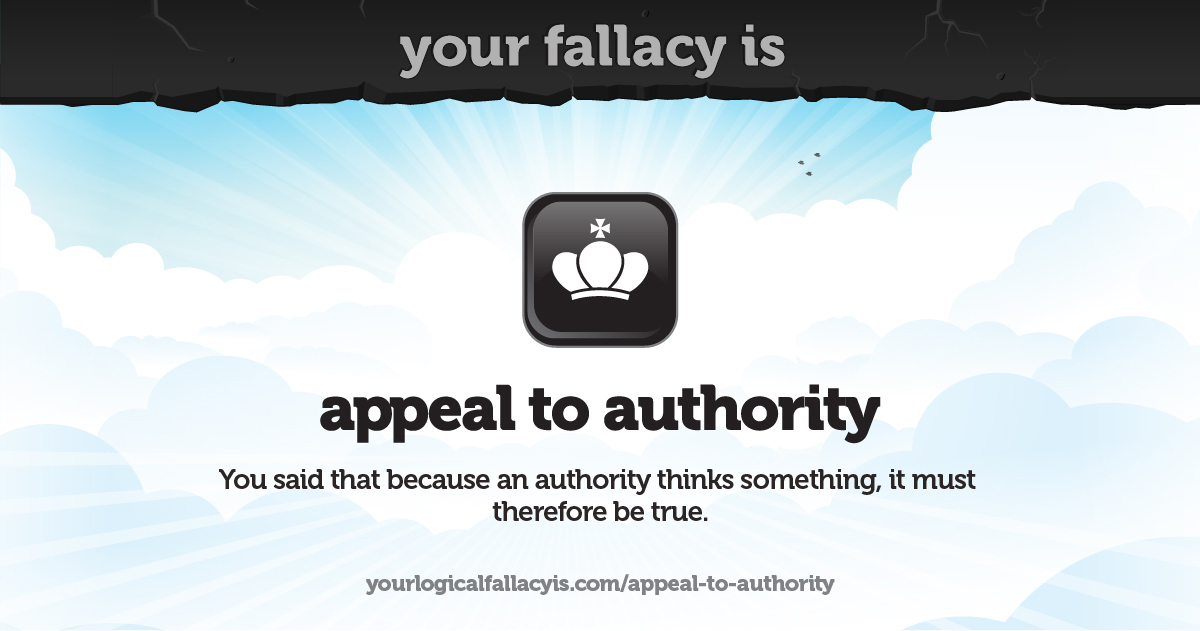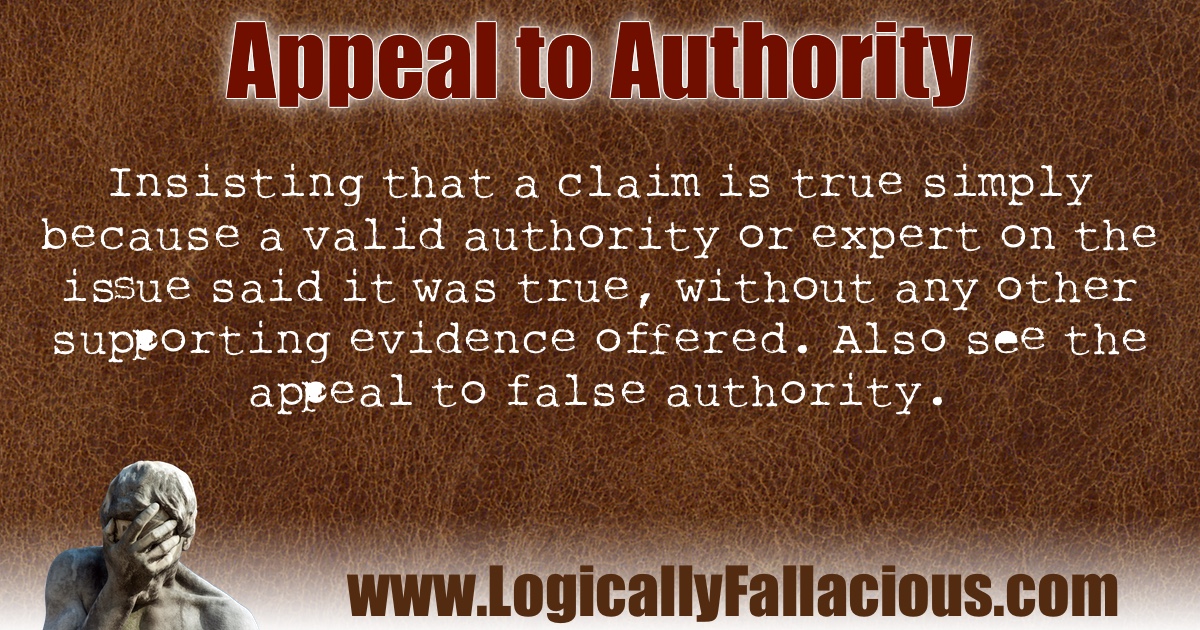Toddsterpatriot
Diamond Member
There is consensus among all the climate change community on AGW.
Just nothing specific. LOL!
Follow along with the video below to see how to install our site as a web app on your home screen.
Note: This feature may not be available in some browsers.
There is consensus among all the climate change community on AGW.
Name one climate related institution that is NOT ON BOARD.
You can’t. I’m right. You’re a fool.
Boy, you are illiterate. . These are people, not institutes or governments. You really can’t read can you.
Look up INSTITUTION.
Still waiting dufus.
How about Florida ? How about Exxon ?
To appeal to a real authority is NOT a logical fallacyPay attention: The appeal to authority is a logical fallacy.
Do you understand what that means?



| A. Proper experts and authorities render valuable opinions in their fields and, ceteris paribus, should be believed when we are unable to come to a conclusion on more secure grounds. | |
| B. To qualify as an authority, the individual must be generally recognized by peers in the same field when the peers hold a similar view. (Examine, for yourself, why this condition is not an instance of the ad populum fallacy.) |
Name one climate scientistBoy, you are illiterate. . These are people, not institutes or governments. You really can’t read can you.
Look up INSTITUTION.
Still waiting dufus.
What are the evidences?lets see what the Texas Aggie division of the Texas state govt a deep red state says about climate change. Ooops, nothing there.
:watermark(cdn.texastribune.org/media/watermarks/2023.png,-0,30,0):focal(0x0:3000x2000)/static.texastribune.org/media/files/cd7a58d9139af5f0d5ef765e33f42f2d/Inflation%20Grocery%20Store%20MF%20TT%2006.jpg)
Texas ag agency says climate change threatens stateâs food supply
A new Texas Department of Agriculture report also points to other factors that are making it harder for Texans to access and afford food, including wages falling behind rising costs of living.www.texastribune.org
I'm not the one who uses one logical fallacy after the other, and who doesn't even know what a logical fallacy is.You can take it anyways you want. The uninformed like you have no logic. You just jump from one scam to another.
What link?bripat9643 This is off topic as hell, but I just noticed your link. LOL at first, I thought it said "daily septic" and I thought, this ought to be good.
I knew some prog dumbass was going to say that.To appeal to a real authority is NOT a logical fallacy
It's important to note that this fallacy should not be used to dismiss the claims of experts, or scientific consensus. Appeals to authority are not valid arguments, but nor is it reasonable to disregard the claims of experts who have a demonstrated depth of knowledge unless one has a similar level of understanding and/or access to empirical evidence.
Some consider that it is used in a cogent form if all sides of a discussion agree on the reliability of the authority in the given context
Your logical fallacy is appeal to authority
You said that because an authority thinks something, it must therefore be true.yourlogicalfallacyis.com
Exception: Be very careful not to confuse "deferring to an authority on the issue" with the appeal to authority fallacy. Remember, a fallacy is an error in reasoning. Dismissing the council of legitimate experts and authorities turns good skepticism into denialism. The appeal to authority is a fallacy in argumentation, but deferring to an authority is a reliable heuristic that we all use virtually every day on issues of relatively little importance. There is always a chance that any authority can be wrong, that’s why the critical thinker accepts facts provisionally. It is not at all unreasonable (or an error in reasoning) to accept information as provisionally true by credible authorities. Of course, the reasonableness is moderated by the claim being made (i.e., how extraordinary, how important) and the authority (how credible, how relevant to the claim).Argument from authority - Wikipedia
en.wikipedia.org
The appeal to authority is more about claims that require evidence than about facts. For example, if your tour guide told you that Vatican City was founded February 11, 1929, and you accept that information as true, you are not committing a fallacy (because it is not in the context of argumentation) nor are you being unreasonable.
Unlike, for example, an appeal to pity, it’s possible for an appeal to authority to be a logically sound argument. This isn’t the only type of argument that has both fallacious and non-fallacious uses. Others include the slippery slope and sunk cost fallacies. The difference between a fallacious and non-fallacious appeal to authority, like these others, is how it’s used.
Appeal to Authority
Insisting that a claim is true simply because a valid authority or expert on the issue said it was true, without any other supporting evidence offered. Also see the appeal to false authority.www.logicallyfallacious.com

Appeal to Authority Fallacy: Definition and Examples
When you need to support a claim, it can be tempting to support it with a statement from an authority figure. But if…www.grammarly.com
A. Proper experts and authorities render valuable opinions in their fields and, ceteris paribus, should be believed when we are unable to come to a conclusion on more secure grounds. B. To qualify as an authority, the individual must be generally recognized by peers in the same field when the peers hold a similar view. (Examine, for yourself, why this condition is not an instance of the ad populum fallacy.) Appeal to Authority
The argument from irrelevant appeal to authority is characterized and shown to be sometimes persuasive but normally fallacious.philosophy.lander.edu
The one you posted in your post #1--What link?
Before you embarrass yourself further, I strongly suggest you look at post #325 just above.I knew some prog dumbass was going to say that.
Thanks for showing everyone that you're a dumbass who doesn't know what the appeal to authority is and why it's wrong.
I read your dumb post. It says there is such a thing as a valid appeal to authority, which is dead wrong.Before you embarrass yourself further, I strongly suggest you look at post #325 just above.
I quote five different authoritative sources that say so. But, of course, you know better.I read your dumb post. It says there is such a thing as a valid appeal to authority, which is dead wrong.
Logical fallacy. Is that one of those pop culture things ?I'm not the one who uses one logical fallacy after the other, and who doesn't even know what a logical fallacy is.
Since your erroneous attempt to cite appeal to authority failed, what other logical fallacies do you believe I use?Logical fallacy. Is that one of those pop culture things ?
It’s a demofks dreamLogical fallacy. Is that one of those pop culture things ?
almost every post you make!!! fyi, ignorant posts to move away from the topic almost every post.Since your erroneous attempt to cite appeal to authority failed, what other logical fallacies do you believe I use?
Dagosa, very sorry. I replied to the wrong post. That was intended for bripat12345 or whatever he is.Since your erroneous attempt to cite appeal to authority failed, what other logical fallacies do you believe I use?